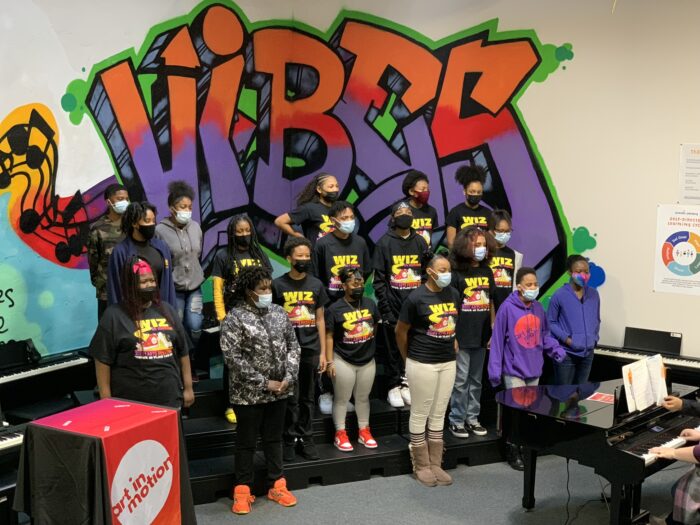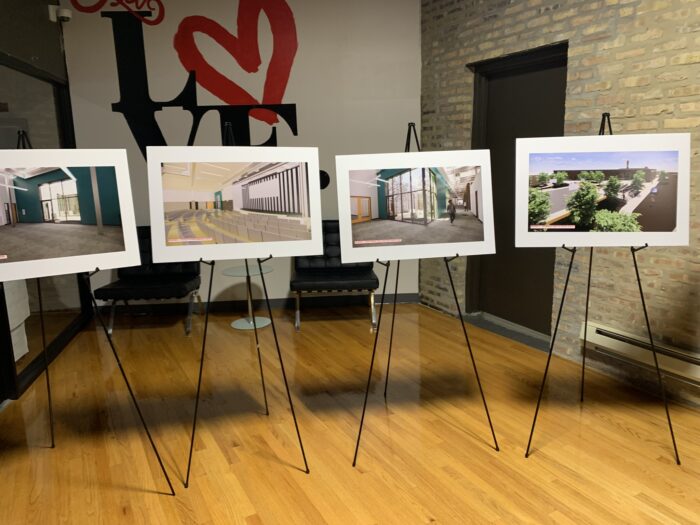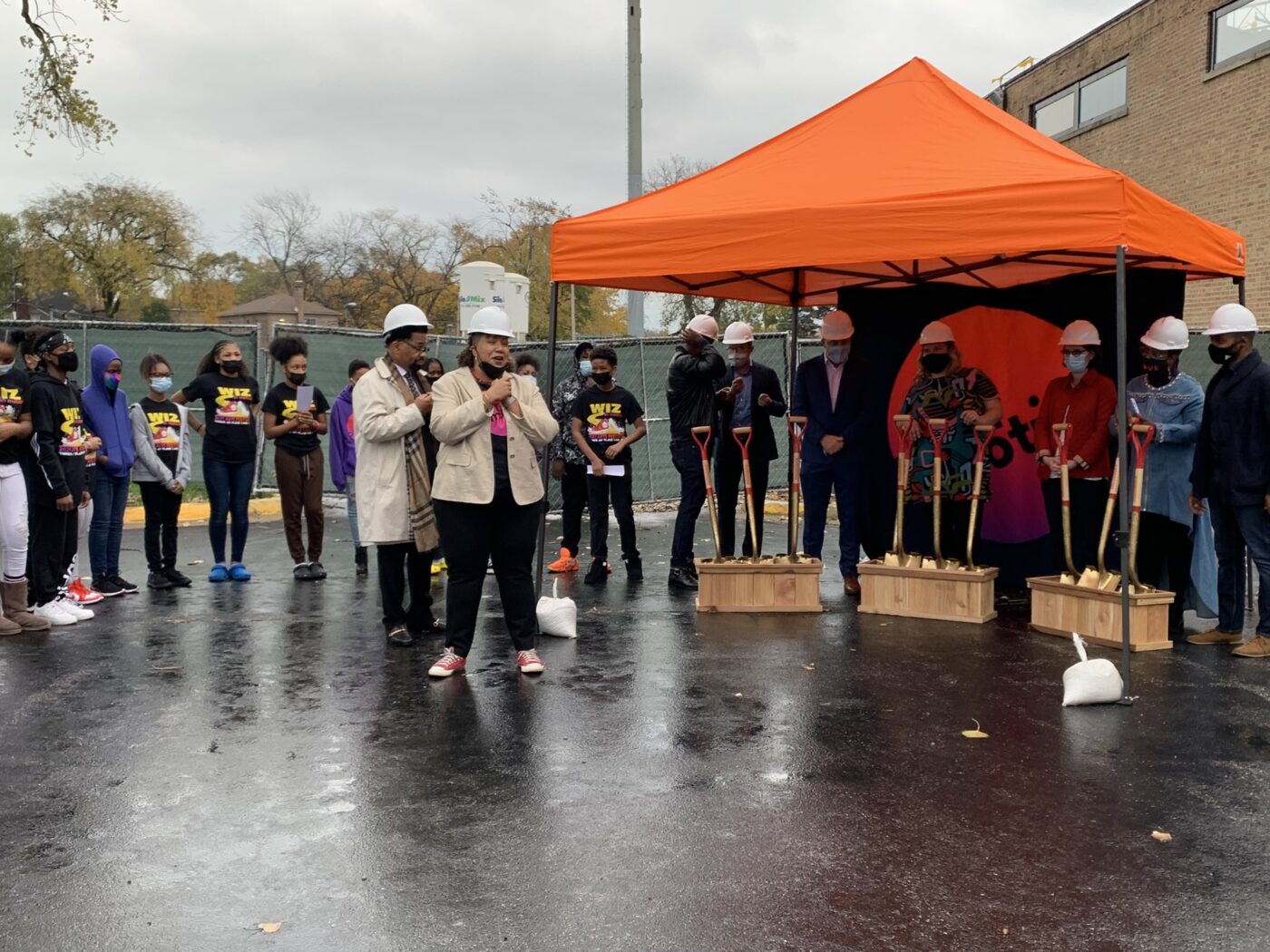The commencement of construction on the 70,000 square foot campus expansion at Art in Motion, led by Wheeler Kearns Architects, was marked on November 17 by a ground breaking ceremony. The new 4.8 acre campus will be completed by August 2022.
Located at 7415 South East End Avenue in the Grand Crossing Neighborhood, Art in Motion is a grade 7-12 charter high school that provides innovative arts opportunities and experiences in visual arts, music, digital media, dance, creative agency, and literary arts. It was founded in 2019 in partnership with Emmy, Grammy and Academy Award-winning artist, actor, author and activist, COMMON, New Life Covenant Church Southeast, and non-profit organization Distinctive Schools.
The adaptive reuse program re-envisions an existing single story 120,000 SF industrial building, built as an ice plant in 1917 and converted into a paper factory in the 1930s, into a vibrant learning environment. The interior is organized around a central circulation spine – Main Street — that offers access to all spaces and links to three internal courtyards. These courtyards introduce daylight and landscape into the building, emphasize transparency and support programming in theater arts, visual arts, and dance, acting as extensions of these program spaces. The program combines traditional academic classrooms, seminar rooms, small group “huddles” and a central studio space, with creative arts spaces, a performance space, a recording studio, a broadcast studio, a dance lab, and a visual arts lab. Outside, a former loading dock is re-imagined as a new landscaped entry plaza, where students will gather for drop off, recreation, workshops and outdoor performances.
Scott Frauenheim, CEO of Distinctive Schools shared, “Art in Motion’s expansion is another step in the right direction for the future of education and the city of Chicago. By focusing on schools as equity focused community hubs, we will give students, families and partners access to the innovative and arts integrated academic, health care and social services that they need to not just cope, but rather to thrive.”


